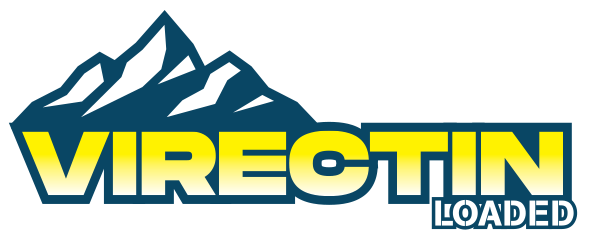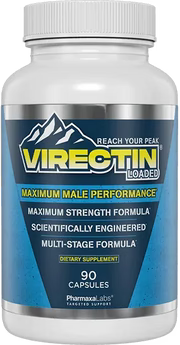In today's fast-paced world, maintaining optimal health and vitality is a priority for many men. Among the various aspects of men's health, testosterone levels often take center stage due to their significant impact on energy, muscle mass, mood, and overall well-being. Whether you're looking to enhance athletic performance, improve your mood, or simply feel more energized, understanding how to naturally boost testosterone can be a game-changer. This comprehensive guide delves into the natural testosterone-boosting secrets every man should know, offering insights backed by scientific research and expert opinions.
Understanding Testosterone: The Vital Hormone
Testosterone is a steroid hormone predominantly produced in the testes in men and, to a lesser extent, in the ovaries in women. It plays a crucial role in developing male reproductive tissues, promoting secondary sexual characteristics, and influencing various bodily functions such as bone density, muscle mass, and red blood cell production. Beyond its physical attributes, testosterone also affects mood, cognitive function, and overall quality of life.
Impact on Physical Health
Testosterone is essential for maintaining muscle mass and strength. It aids in the synthesis of proteins, which are the building blocks of muscle tissue. Adequate testosterone levels help in reducing body fat and increasing muscle definition, contributing to a healthier body composition. Additionally, testosterone supports bone density, reducing the risk of osteoporosis and fractures as men age.
Role in Mental Health
Beyond physical health, testosterone plays a significant role in mental well-being. It has been linked to improved mood, increased motivation, and better cognitive function. Low testosterone levels can contribute to feelings of fatigue, depression, and irritability, impacting overall quality of life.
The Importance of Maintaining Optimal Testosterone Levels
As men age, testosterone levels naturally decline, typically starting around the age of 30. This decrease can lead to various symptoms, including reduced libido, fatigue, decreased muscle mass, increased body fat, and mood swings. However, lifestyle factors such as diet, exercise, sleep, and stress management can significantly influence testosterone levels. By adopting natural methods to boost testosterone, men can mitigate some of the effects of aging and enhance their overall health and vitality.
Age-Related Decline
The natural decline of testosterone begins in the early 30s, with levels decreasing approximately 1% per year. This gradual reduction can result in noticeable changes in energy levels, sexual health, and physical fitness. Understanding and addressing this decline through natural testosterone boosting secrets can help maintain a high quality of life.
Impact of Lifestyle Choices
Modern lifestyles often contribute to the decline in testosterone levels. Poor nutrition, lack of physical activity, inadequate sleep, and high stress levels are common culprits. By making informed lifestyle choices, men can counteract these negative factors and support their body's natural testosterone production.
Natural Ways to Boost Testosterone
Boosting testosterone naturally involves a combination of lifestyle modifications, dietary adjustments, and strategic supplementation. Here are some of the most effective methods supported by scientific research:
1. Strength Training and High-Intensity Interval Training (HIIT)
Engaging in regular physical activity, particularly strength training and high-intensity interval training (HIIT), has been shown to increase testosterone levels. Strength training exercises like weightlifting stimulate muscle growth, which in turn signals the body to produce more testosterone. Similarly, HIIT involves short bursts of intense exercise followed by brief recovery periods, effectively boosting testosterone and improving overall fitness.
Scientific Insight: A study published in the European Journal of Applied Physiology found that men who participated in a consistent strength training program experienced significant increases in testosterone levels compared to those who did not exercise.
Benefits of Strength Training
Strength training not only enhances muscle mass but also improves metabolic rate, bone density, and insulin sensitivity. Compound movements such as squats, deadlifts, and bench presses are particularly effective in stimulating testosterone production.
Advantages of HIIT
HIIT is efficient in burning calories and improving cardiovascular health while also promoting testosterone production. The intense nature of HIIT workouts can lead to hormonal responses that favor muscle growth and fat loss.
2. Balanced Diet Rich in Protein, Healthy Fats, and Carbohydrates
A well-balanced diet plays a pivotal role in hormone production, including testosterone. Consuming adequate amounts of protein supports muscle repair and growth, while healthy fats, such as those found in avocados, nuts, and olive oil, are essential for hormone synthesis. Carbohydrates provide the necessary energy for intense workouts, indirectly contributing to testosterone production.
Expert Opinion: Dr. John Hopkins, an endocrinologist, emphasizes the importance of a diet that includes macro and micronutrients essential for hormone health, including zinc and vitamin D, which are directly linked to testosterone levels.
Importance of Macronutrients
Proteins are the building blocks of muscle and play a critical role in testosterone production. Healthy fats, particularly monounsaturated and saturated fats, are necessary for maintaining optimal hormone levels. Carbohydrates provide the energy required for physical activities that stimulate testosterone release.
Essential Vitamins and Minerals
Zinc and vitamin D are particularly important for testosterone synthesis. Zinc deficiency has been linked to reduced testosterone levels, while vitamin D acts as a hormone that directly influences testosterone production. Incorporating foods rich in these nutrients or considering supplementation can support testosterone health.
3. Adequate Sleep and Stress Management
Sleep and stress levels significantly impact testosterone production. Poor sleep quality and chronic stress elevate cortisol levels, a hormone that can inhibit testosterone synthesis. Ensuring 7-9 hours of quality sleep each night and incorporating stress-reduction techniques like meditation, yoga, or deep-breathing exercises can help maintain optimal testosterone levels.
Research Findings: Research published in the Journal of the American Medical Association indicates that sleep deprivation can dramatically reduce testosterone levels, highlighting the importance of adequate rest for hormonal balance.
The Role of Quality Sleep
Quality sleep is essential for the body's restorative processes, including hormone production. During deep sleep stages, the body secretes the majority of its testosterone. Disrupted or insufficient sleep can lead to lower testosterone levels and impaired overall health.
Managing Chronic Stress
Chronic stress triggers the release of cortisol, which can negatively impact testosterone production. Implementing stress management techniques such as mindfulness meditation, regular physical activity, and engaging in hobbies can help mitigate stress levels and support hormonal health.
4. Vitamin D and Mineral Supplementation
Vitamin D is a fat-soluble vitamin that functions as a hormone in the body, playing a critical role in testosterone production. Sun exposure is a primary source of vitamin D, but supplementation may be necessary, especially in regions with limited sunlight. Additionally, minerals like zinc and magnesium are vital for maintaining healthy testosterone levels.
Scientific Evidence: A study published in Hormone and Metabolic Research found a positive correlation between vitamin D supplementation and increased testosterone levels in men with low baseline vitamin D.
Sources of Vitamin D
While sunlight is the most effective source of vitamin D, dietary sources include fatty fish, fortified dairy products, and egg yolks. For those with limited sun exposure, vitamin D supplements can help maintain adequate levels.
Essential Minerals for Testosterone
Zinc plays a crucial role in testosterone synthesis and metabolic function. Magnesium supports muscle function and energy production. Ensuring sufficient intake of these minerals through diet or supplementation can enhance natural testosterone boosting secrets.
5. Natural Herbal Supplements
Several herbal supplements are renowned for their potential to boost testosterone naturally. These include:
- Ashwagandha: An adaptogenic herb that helps reduce stress and improve overall hormonal balance.
- Fenugreek: Known to support testosterone levels and enhance libido.
- Tribulus Terrestris: Often used to improve athletic performance and increase testosterone.
- Ginger: Possesses anti-inflammatory properties and may support testosterone production.
Expert Insights: While some studies support the efficacy of these herbs, it's essential to approach supplementation with caution and consult healthcare professionals to avoid potential interactions and side effects.
Benefits of Ashwagandha
Ashwagandha has been shown to reduce cortisol levels, which can indirectly support testosterone production. It also contributes to improved muscle mass and strength, making it a valuable addition to natural testosterone boosting secrets.
Fenugreek and Libido Enhancement
Fenugreek contains compounds that may inhibit enzymes that convert testosterone into estrogen, thereby maintaining higher testosterone levels. Additionally, it is believed to enhance libido and sexual function.
Tribulus Terrestris for Athletic Performance
Tribulus Terrestris is often used by athletes to improve performance and increase testosterone levels. It is believed to enhance nitric oxide production, leading to better blood flow and muscle pump during workouts.
Ginger's Anti-Inflammatory Properties
Ginger not only supports testosterone production but also reduces inflammation, which can positively impact overall health and recovery from exercise.
Debunking Myths: Health Claims vs. Reality
With the surge in interest surrounding testosterone boosters, particularly natural supplements, it's crucial to discern fact from fiction. Many products on the market make bold claims about their ability to significantly increase testosterone levels, but not all of these claims are backed by solid scientific evidence.
Myth 1: All Natural Supplements are Safe and Effective
Reality: While many natural supplements can aid in boosting testosterone, their safety and efficacy vary. Natural does not always equate to safe; some supplements may contain ingredients that can interact with medications or cause adverse effects. It's essential to choose products from reputable manufacturers and consult with a healthcare provider before starting any new supplement regimen.
Myth 2: Lifestyle Changes Are Not Enough for Testosterone Enhancement
Reality: While some men may require medical intervention, many can achieve significant improvements in testosterone levels through lifestyle modifications alone. Proper diet, regular exercise, adequate sleep, and stress management can go a long way in naturally boosting testosterone.
Myth 3: Testosterone Boosting Supplements Work Instantly
Reality: Natural testosterone boosting is a gradual process. Unlike synthetic testosterone therapies, which can have immediate effects, natural methods may take weeks or months to show noticeable changes. Patience and consistency are key.
Potential Downsides and Precautions
While natural methods to boost testosterone are generally safe, it's important to be aware of potential downsides and take necessary precautions:
1. Overuse of Supplements
Excessive intake of certain supplements, particularly those containing high doses of herbs or vitamins, can lead to adverse effects. For example, excessive zinc intake can cause nausea, vomiting, and impaired immune function.
2. Interactions with Medications
Some natural supplements can interact with prescription medications, altering their effectiveness or causing harmful side effects. Always consult with a healthcare provider before adding new supplements to your regimen, especially if you are taking other medications.
3. Misdiagnosis of Low Testosterone
Feeling fatigued or experiencing mood swings does not necessarily mean you have low testosterone. These symptoms can be indicative of various health issues. It's essential to get proper medical evaluation and diagnosis before pursuing testosterone-boosting strategies.
4. Quality of Supplements
The supplement industry is not as tightly regulated as pharmaceuticals, leading to variations in product quality. Some supplements may contain contaminants or not provide the advertised dosage. Selecting products that have been third-party tested can help ensure quality and safety.
Practical Tips for Choosing and Integrating Testosterone Boosters
Navigating the plethora of natural testosterone boosters can be overwhelming. Here are some practical tips to help you make informed choices:
1. Prioritize Lifestyle Modifications
Before turning to supplements, focus on optimizing your diet, exercise routine, sleep patterns, and stress levels. These foundational elements are crucial for hormonal balance and overall health.
2. Choose Reputable Brands
When selecting supplements, opt for brands that are transparent about their ingredients and have undergone third-party testing. Certifications from organizations like NSF International or the U.S. Pharmacopeia can indicate quality and safety.
3. Start with Lower Doses
If you decide to use supplements, begin with the lowest effective dose to assess your body's response. This approach minimizes the risk of adverse effects while allowing you to gauge efficacy.
4. Monitor Your Progress
Keep track of any changes in your energy levels, mood, and physical performance. Regular blood tests to monitor testosterone levels can provide objective data on how well your strategies are working.
5. Consult Healthcare Professionals
Seek advice from healthcare providers or endocrinologists before starting any testosterone-boosting regimen. They can provide personalized recommendations based on your health status and needs.
Additional Natural Testosterone Boosting Secrets
Beyond the primary methods discussed, there are several additional strategies that can contribute to maintaining and boosting testosterone levels naturally:
6. Maintain a Healthy Weight
Excess body fat, particularly around the abdomen, is associated with lower testosterone levels. Maintaining a healthy weight through a balanced diet and regular exercise can help optimize hormone levels.
7. Minimize Alcohol Consumption
Excessive alcohol intake can negatively impact testosterone production. Limiting alcohol consumption can help maintain healthy testosterone levels and overall hormonal balance.
8. Avoid Exposure to Endocrine Disruptors
Certain chemicals found in plastics, personal care products, and other household items can act as endocrine disruptors, interfering with hormone production. Reducing exposure to these chemicals by choosing natural products and avoiding plastic containers can support testosterone health.
9. Incorporate Intermittent Fasting
Intermittent fasting can improve insulin sensitivity and reduce body fat, both of which are beneficial for testosterone production. However, it's essential to approach fasting carefully and consult with a healthcare provider to ensure it's appropriate for your individual health needs.
10. Stay Hydrated
Proper hydration is crucial for overall health and can influence hormone levels. Dehydration can lead to stress and negatively impact testosterone production, so ensuring adequate fluid intake is a simple yet effective natural testosterone boosting secret.
Conclusion: Embracing a Holistic Approach to Testosterone Health
Boosting testosterone naturally is a multifaceted endeavor that encompasses lifestyle changes, dietary adjustments, and strategic supplementation. By understanding the factors that influence testosterone levels and implementing evidence-based strategies, men can enhance their hormonal health, improve physical performance, and elevate their overall quality of life. While natural methods offer a safe and sustainable approach to testosterone optimization, it's essential to approach them with informed caution and professional guidance. Embracing a holistic approach not only supports hormonal balance but also promotes overall well-being, empowering men to lead healthier, more vibrant lives.
More stories

Understanding Sexual Response: What Really Happens in All 4 Stages?





